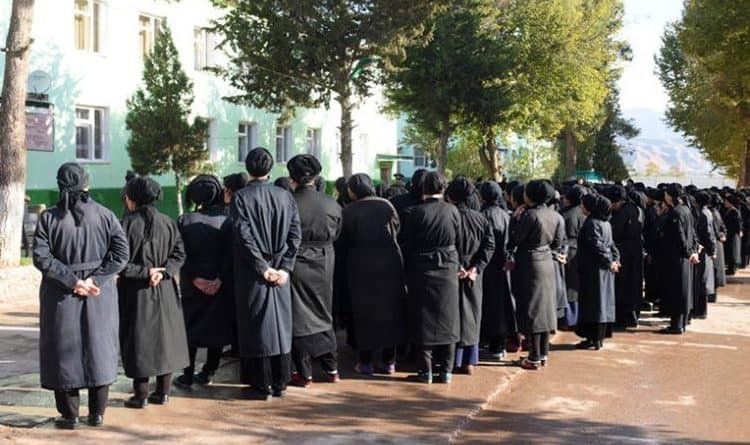In Uzbekistan, prisoners are forced to work despite quarantine
In colony No.42, located in Tashkent region, the use of labor of prisoners continues despite introduced quarantine. On March 26, the prison authorities sent prisoners to work in a syringe manufacturing workshop.
On March 25, 15 women were chosen for a 12-hour labor shift. Before that, they were quarantined for five days; two days of this time, they were engaged in landscaping. The group was supposedly formed from volunteers. As it was, ACCA became known from prisoner Elena Stepina. “For refusing to go to the workshop, I was called to the assistant of the head of the colony, Jamshid Kholkhuzhayev. He intimidated me that he would make up “a violation of the regime” for refusing to go to work,” said Stepina.
Officials from the Ministry of Internal Affairs neglected the measures taken by the government to disseminate the COVID-19 coronavirus. The workshop is located in one of the districts of Tashkent and is a closed area where prisoners work in a limited space. To maintain infectious safety, each inmate was given two disposable masks a week ago.
“I have had tuberculosis in the colony No.21. My hemoglobin is low. I can’t work for 12 hours. They forced me to go to the syringe manufacturing workshop with threats to put me in the isolation ward,” says Stepina. “The head of the security department of the colony, Utkir Juraev, is responsible for the entire process of selecting and sending prisoners to work.”
According to ACCA’s expert, the only reason for the forced labor of prisoners for many hours is the benefit to businessmen from cheap labor and the income to the administration of prisons.
“Some small production of 20-40 people is being created. Some make clay toys for sale to tourists, others sew or make syringes,” the expert says. “Even if all products don’t belong to highly liquid ones, but certainly have a demand. The lack of civilian control and criminal solidarity in the system of the Main Directorate for the Execution of Sentences under the Ministry of Internal Affairs creates disrespect for the laws of the country.”
In Uzbekistan, the sanitary and epidemiological situation in places of detention has remained unsatisfactory for many years. That’s why the country is on the list of countries of particular concern in the international community.
On March 25, UN High Commissioner for Human Rights Michelle Bachelet even called to take urgent measures to protect the life and health of people in prisons and other closed institutions, as part of comprehensive measures to control the COVID-19 pandemic.
“In many countries, places of deprivation of liberty are crowded, sometimes to a dangerous level. People are often kept in unsanitary conditions, and medical care does not meet the necessary standards or is absent in general. Physical distance and self-isolation are practically impossible under such conditions,” warned Bachelet.




